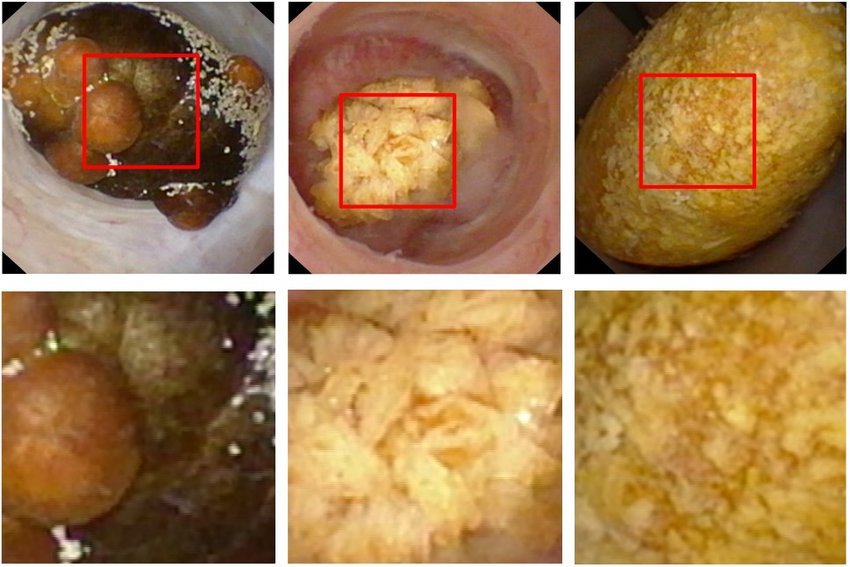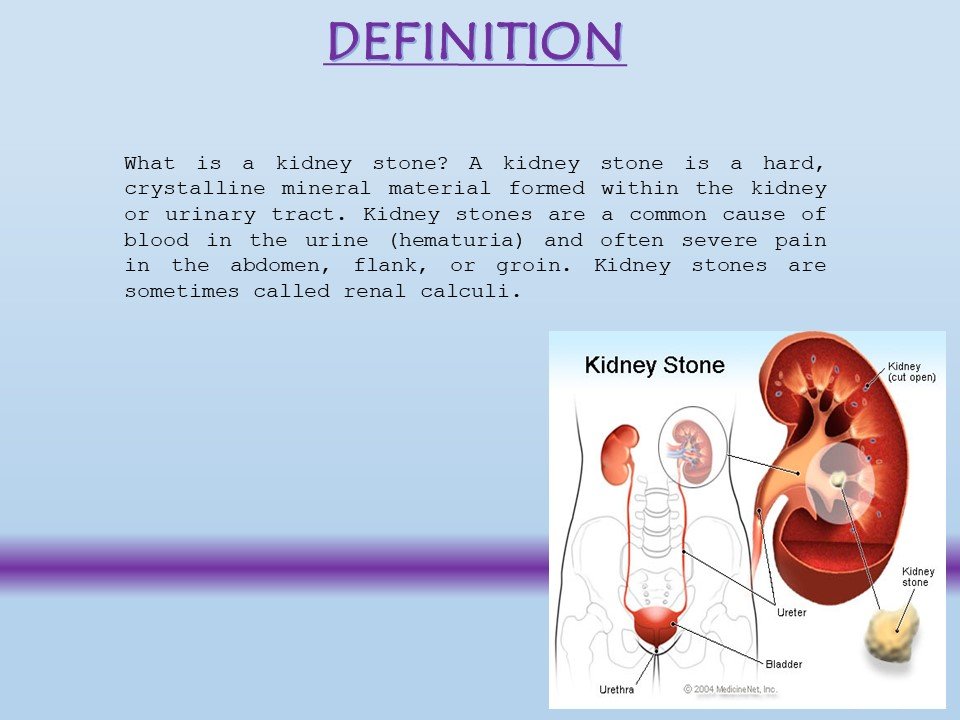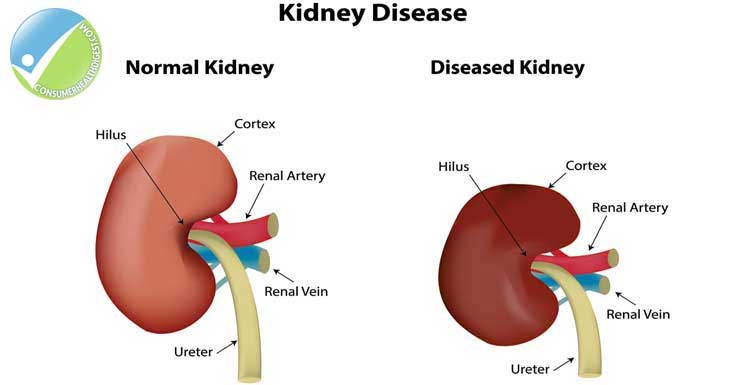Diagnosis: Too Much Calcium In The Urine
Possible treatments:
Thiazide diuretics
These drugs help to decrease urine calcium excretion. They also help to keep calcium in the bones, reducing the risk for osteoporosis. The most common side effect of thiazide diuretics is potassium loss, so in many cases your doctor will prescribe a potassium supplement to go along with the thiazide diuretic.
Lower sodium intake
The human body carefully regulates its sodium levels. When excess sodium is excreted in the urine, calcium is also excreted proportionally. In other words, the more sodium you consume, the more calcium that will be in your urine. Your goal should be to reduce your sodium intake so that you consume less than 2 grams of sodium per day. Watch out for silent sources of salt, such as fast foods, packaged or canned foods, softened water and sports drinks.
Normal calcium diet
People who form stones sometimes think that because there is too much calcium in their urine, they should restrict their calcium intake. There is no research that supports this practice. Your body needs dietary calcium to support the skeleton. You should be encouraged to consume two servings of dairy or other calcium-rich foods to maintain bone stores of calcium.
Increase fluid intake
No matter what your diagnosis, you should drink enough water to produce at least 2 liters of urine per day.
How May These Be Treated Medically
With clinical treatment, kidney stones might be fragmented and flushed out by,
Extracorporeal lithotripsy that radiates shock waves.
Percutaneous ultrasonic lithotripsy that emits ultrasound.
Laser lithotripsy wherein a guided laser is used.
Ureteroscopy whereby a scope fragments the stones.
To eliminate stubborn stones more invasive procedure might be advised, for instance,
Nephrolithotomy that involves a surgical procedure for removing the stones.
Parathyroid gland surgery to remove stones formed by an overactive parathyroid.
Causes Of Kidney Stone Disease
Several things can cause kidney stone disease.The following are some of the factors.
1. Genetics
Certain people have had kidney disorders since birth, although the cases are relatively few. Children who have experienced metabolic disorders since childhood, especially in the kidneys, urine tend to precipitate salt easily. It is easy for stones to form. Because the kidney function cannot work naturally, the smooth process of excreting urine is also easily disturbed. With a lot of lime in the urine, it is easy to precipitate stones.
2. Food
Food and drink factors cause most cases of kidney stone disease. Certain foods do contain chemicals, affect the sedimentation of urine. Especially, foods contain high calcium, such as oxalate and phosphate.
Both materials easily crystallize in the kidneys. The same goes for foods that are high in purines. People who consume water in small quantities are right at risk for kidney stone disease.
Lack of fluid in the kidneys, cause the urine to become concentrated, then easily forms stones.
3. Activities
Work and exercise factors can affect kidney stone disease.People who work a lot sitting and people who do not have enough exercising have a top risk to have kidney stones disease.
Because the body is less mobile, either due to lack of exercise or work activities, it causes blood circulation and urine flow to become less smooth. Not only do kidney stones are suffered, but other diseases can simply attack.
Don’t Miss: Celery Juice Kidney
Can A Large Kidney Stone Cause An Injury
Your risk of injury from a kidney stone can go up based on the size and location of the stone. A larger stone could get stuck in a ureter, causing pressure to build up. This can lead to renal failure and, in the worst-case scenario, you could lose your kidney. The chance of passing a 1 cm stone is less than 10%, and stones larger than 1 cm typically dont pass.
Why Kidney Stones Can Be A Problem

Stones dont always stay in the kidney. Sometimes they pass from the kidney into the ureters. Ureters are small and delicate, and the stones may be too large to pass smoothly down the ureter to the bladder.
Passage of stones down the ureter can cause spasms and irritation of the ureters. This causes blood to appear in the urine.
Sometimes stones block the flow of urine. This is called a urinary obstruction. Urinary obstructions can lead to kidney infection and kidney damage.
Diagnosis of kidney stones requires a complete health history assessment and a physical exam. Other tests include:
- blood tests for calcium, phosphorus, uric acid, and electrolytes
- blood urea nitrogen and creatinine to assess kidney functioning
- urinalysis to check for crystals, bacteria, blood, and white cells
- examination of passed stones to determine their type
The following tests can rule out obstruction:
The contrast dye used in the CT scan and the IVP can affect kidney function. However, in people with normal kidney function, this isnt a concern.
There are some medications that can increase the potential for kidney damage in conjunction with the dye. Make sure your radiologist knows about any medications youre taking.
Don’t Miss: Is Pomegranate Juice Good For Your Kidneys
How Long Does It Take A Kidney Stone To Form
You can have kidney stones for years without knowing theyre there. As long as these stones stay in place within your kidney, you wont feel anything. Pain from a kidney stone typically starts when it moves out of your kidney. Sometimes, a stone can form more quickly within a few months.
Talk with your healthcare provider about your risk factors. They might do a 24-hour urine test to check how quickly you develop stones.
Should I Cut Calcium Out Of My Diet If I Develop Calcium Oxalate Kidney Stones
If you develop kidney stones composed of calcium, you may be tempted to stop eating foods that include calcium. However, this is the opposite of what you should do. If you have calcium oxalate stones, the most common type, its recommended that you have a diet higher in calcium and lower in oxalate.
Foods that are high in calcium include:
- Cows milk.
Its also important to drink plenty of fluids to dilute the substances in your urine.
Don’t Miss: Apple Cider Vinegar Kidney Stones Myth
How May These Be Treated Naturally
Kidney stones might be treated naturally be these remedies,
Reducing toxins and therefore the stress on kidneys.
Drinking sufficient water to assist the excretion of toxins.
A diet rich in antioxidants and low on acids for instance,
Kidney beans Pomegranates
Cabbages and broccolis Purple grapes
Egg whites Watermelons
How Common Are Uric Acid Stones
It is estimated that one in 10 people in the U.S. will have a kidney stone of one kind or another at some time in their lives. In the late 1970s, about 3.8% of the population had kidney stones, but this figure has now increased to about 8.8% of the population. Among men, the lifetime risk is about 19% in women, it is 9%. Usually, the first incidence of kidney stones occurs after age 30. However, there are many cases that occur sooner, some in children as young as five years of age.
Recommended Reading: Is Watermelon Good For Your Kidneys
Inhibitors Of Stone Formation
Normal urine contains chelating agents, such as citrate, that inhibit the nucleation, growth, and aggregation of calcium-containing crystals. Other endogenous inhibitors include calgranulin , TammHorsfall protein, glycosaminoglycans, uropontin , nephrocalcin , prothrombin F1 peptide, and bikunin . The biochemical mechanisms of action of these substances have not yet been thoroughly elucidated. However, when these substances fall below their normal proportions, stones can form from an aggregation of crystals.
Sufficient dietary intake of magnesium and citrate inhibits the formation of calcium oxalate and calcium phosphate stones in addition, magnesium and citrate operate synergistically to inhibit kidney stones. Magnesium’s efficacy in subduing stone formation and growth is dose-dependent.
Will It Help Or Hurt To Take A Vitamin Or Mineral Supplement
The B vitamins which include thiamine, riboflavin, niacin, B6 and B12 have not been shown to be harmful to people with kidney stones. In fact, some studies have shown that B6 may actually help people with high urine oxalate. However, it is best to check with your healthcare professional or dietitian for advice on the use of vitamin C, vitamin D, fish liver oils or other mineral supplements containing calcium since some supplements can increase the chances of stone formation in some individuals.
Don’t Miss: Can Seltzer Water Cause Kidney Stones
Risk Factors For Kidney Stones
The greatest risk factor for kidney stones is making less than 1 liter of urine per day. This is why kidney stones are common in premature infants who have kidney problems. However, kidney stones are most likely to occur in people between the ages of 20 and 50.
Different factors can increase your risk of developing a stone. In the United States, white people are more likely to have kidney stones than black people.
Sex also plays a role. More men than women develop kidney stones, according to the National Institute of Diabetes and Digestive and Kidney Diseases .
A history of kidney stones can increase your risk. So does a family history of kidney stones.
Other risk factors include:
- frequent need to urinate
- urinating small amounts of urine
In the case of a small kidney stone, you may not have any pain or symptoms as the stone passes through your urinary tract.
Symptoms Of Kidney Stones

Many people with kidney stones have no symptoms. However, some people do get symptoms, which may include:
- a gripping pain in the back usually just below the ribs on one side, radiating around to the front and sometimes towards the groin. The pain may be severe enough to cause nausea and vomiting
- blood in the urine
- cloudy or bad smelling urine
- shivers, sweating and fever if the urine becomes infected
- small stones, like gravel, passing out in the urine, often caused by uric acid stones
- an urgent feeling of needing to urinate, due to a stone at the bladder outlet.
Recommended Reading: Are Almonds Bad For Your Kidneys
What Causes Kidney Stones
- By Kevin R. Loughlin, MD, MBA, Contributor
Stone disease has plagued humanity since ancient times. Kidney stones have been identified in Egyptian mummies. The Hippocratic oath describes their treatment: I will not use the knife, not even verily, on sufferers from stone, but I will give place to such as are craftsmen therein.
What Are The Symptoms Of Kidney Stones
“A kidney stone is a hard mass that’s made up of minerals , certain salts and other byproducts. They can form when these substances accumulate in the area of your kidneys where urine is produced,” explains Dr. Kannady.
Kidney stones can be as small as the point of a pen or as large as a ping pong ball.
“Typically, a person doesn’t start noticing the symptoms of a kidney stone until it moves from the kidney into the ureter, which is the tube that carries urine from your kidney to your bladder,” Dr. Kannady adds.
Kidney stone symptoms include:
- Sharp pain in the lower abdomen, typically on one side
- A burning sensation or pain while urinating
- Urinating frequently
- Feeling like you’re urinating incompletely or in small amounts
- Urine that is brown, red or pink, which indicates the presence of blood
- Smelly or cloudy urine
- Feeling queasy or nauseous due to the intensity of the pain
- Signs of infection, including fever, chills and vomiting
Recommended Reading: Red Wine Kidney Stones
How Common Are Kidney Stones
Each year, more than half a million people go to emergency rooms for kidney stone problems. It is estimated that one in ten people will have a kidney stone at some time in their lives.
The prevalence of kidney stones in the United States increased from 3.8% in the late 1970s to 8.8% in the late 2000s. The prevalence of kidney stones was 10% during 20132014. The risk of kidney stones is about 11% in men and 9% in women. Other diseases such as high blood pressure, diabetes, and obesity may increase the risk for kidney stones.
Kidney Stone Causes Symptoms Treatments & Prevention
Your kidneys remove waste and fluid from your blood to make urine. Sometimes, when you have too much of certain wastes and not enough fluid in your blood, these wastes can build up and stick together in your kidneys. These clumps of waste are called kidney stones.
Also Check: Osteocleanse
What Causes Uric Acid Stones
Uric acid stones form when the levels of uric acid in the urine is too high, and/or the urine is too acidic on a regular basis. High acidity in urine is linked to the following causes:
- Inherited problems in how the body processes uric acid or protein in the diet can increase the acid in urine. This can be seen in conditions such as gout, which is known for its high levels of uric acid in the blood and painful deposits of crystals in the joints.
- Uric acid can result from a diet high in purines, which are found especially in animal proteins such as beef, poultry, pork, eggs, and fish. The highest levels of purines are found in organ meats, such as liver and fish. Eating large amounts of animal proteins can cause uric acid to build up in the urine. The uric acid can settle and form a stone by itself or in combination with calcium. It is important to note that a persons diet alone is not the cause of uric acid stones. Other people might eat the same diet and not have any problems because they are not prone to developing uric acid stones.
- There is an increased risk of uric acid stones in those who are obese or diabetic.
- Patients on chemotherapy are prone to developing uric acid stones.
How Can I Prevent Kidney Stones
The best way to prevent most kidney stones is to drink enough fluids every day. Most people should drink eight to 12 cups of fluid per day. If you have kidney disease and need to limit fluids, ask your doctor how much fluid you should have each day. Limiting sodium and animal protein in your diet may also help to prevent kidney stones. If your doctor can find out what your kidney stone is made of, he or she may be able to give you specific diet recommendations to help prevent future kidney stones.
If you have a health condition that makes you more likely to have kidney stones, your doctor might tell you to take medicine to treat this condition.
Never start or stop any treatment or diet without talking to your doctor first!
Don’t Miss: Std That Affects Kidneys
The Struvite Kidney Stone
Why they start
Because urine is filled with urea, soil bacteria that get into the urinary tract can break it down to ammonia and create struvite from the magnesium and phosphate urine always contains.
You might wonder how soil bacteria get into the urinary system.
Because we eat them, with foods that are not cooked, and they become part of the intestinal bacterial population from an early age. In us and around us, they find a way into the urinary system, especially in women whose shorter urethra makes entry easier. No matter how skillfully used, any instrument put into the bladder can carry our personal soil bacteria with it.
What they do
Because they live among molds and fungi, soil bacteria easily mount resistances to antibiotics, so antibiotics given for a urinary tract infection will tend to kill sensitive bacteria and select out those that can resist them.
Soil bacteria can produce struvite stones de novo, or infect calcium stones to produce a mixed stone. Either way, struvite stones are infected by their very nature. They can become huge. Their bacteria can injure the kidneys, even enter the bloodstream and cause sepsis.
Treatment is a mix of thoughtful surgery and selection of antibiotics after such surgery to kill bacteria that remain. If the stones are a mixture of struvite and calcium crystals, new calcium stones need to be prevented.
Why You Get Stones

Part of preventing stones is finding out why you get them. Your health care provider will perform tests to find out what is causing this. After finding out why you get stones, your health care provider will give you tips to help stop them from coming back.
Some of the tests he or she may do are listed below.
Medical and Dietary History
Your health care provider will ask questions about your personal and family medical history. He or she may ask if:
- Have you had more than one stone before?
- Has anyone in your family had stones?
- Do you have a medical condition that may increase your chance of having stones, like frequent diarrhea, gout or diabetes?
Knowing your eating habits is also helpful. You may be eating foods that are known to raise the risk of stones. You may also be eating too few foods that protect against stones or not drinking enough fluids.
Understanding your medical, family and dietary history helps your health care provider find out how likely you are to form more stones.
Blood and Urine Tests
Imaging Tests
When a health care provider sees you for the first time and you have had stones before, he or she may want to see recent X-rays or order a new X-ray. They will do this to see if there are any stones in your urinary tract. Imaging tests may be repeated over time to check for stone growth. You may also need this test if you are having pain, hematuria or recurrent infections.
Stone Analysis
Recommended Reading: Can You Have 4 Kidneys